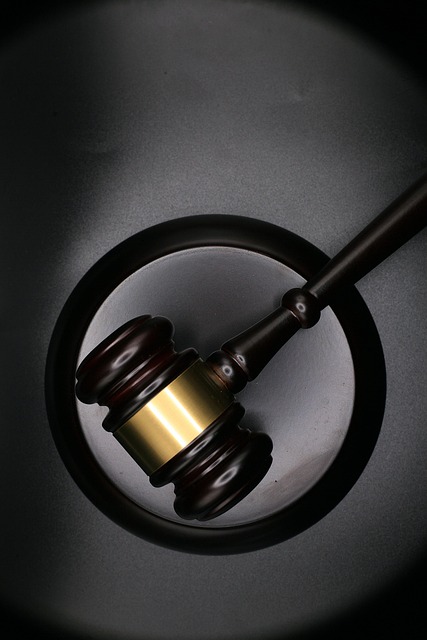Regulatory fraud laws protect against deceptive practices with severe consequences. Businesses build a defense by understanding rules, cultivating integrity, and implementing strong internal controls to navigate scrutiny. Key steps include gathering evidence, engaging legal counsel, maintaining open regulator communication, and learning from case studies to avoid false accusations and protect reputations.
In today’s complex business landscape, understanding regulatory fraud laws is paramount for companies aiming to avoid costly missteps. This comprehensive guide delves into the intricacies of these laws, providing a clear overview and practical insights. We explore common types of fraud allegations, their legal ramifications, and offer strategic steps to build a robust defense against false accusations. Additionally, real-world case studies illuminate crucial lessons learned from past experiences, empowering businesses to navigate regulatory challenges with confidence.
- Understanding Regulatory Fraud Laws: A Comprehensive Overview
- Common Types of Fraud Allegations and Their Legal Ramifications
- Building a Robust Defense Strategy: Steps to Protect Your Business
- Case Studies: Lessons from Real-World Fraud Accusations and Defenses
Understanding Regulatory Fraud Laws: A Comprehensive Overview

Regulatory fraud laws are designed to protect businesses and governments from deceptive practices that can have severe economic and societal impacts. Understanding these laws is crucial for companies aiming to build a robust defense against false accusations, which could lead to significant legal and financial repercussions. At their core, these regulations target individuals or entities that intentionally mislead regulatory bodies, manipulate markets, or deceive the public for personal gain.
By staying compliant with industry-specific rules and guidelines, businesses can navigate potential pitfalls and achieve extraordinary results in the face of scrutiny. A solid general criminal defense strategy involves staying informed about evolving legislative frameworks, fostering a culture of integrity within the organization, and implementing robust internal controls to mitigate risks of non-compliance. This proactive approach ensures that companies are not only prepared for potential regulatory interactions but also safeguard their reputation and protect their clients’ interests.
Common Types of Fraud Allegations and Their Legal Ramifications

In the realm of regulatory fraud laws, several common types of fraud allegations surface frequently. These include financial misreporting, fraudulent use of company resources, manipulation of market data, and bribery or corruption within corporate structures. Each of these has significant legal ramifications, as they can lead to severe penalties including hefty fines, imprisonment for individuals involved, and even liquidation of businesses. An unprecedented track record of such frauds has prompted regulatory bodies worldwide to tighten laws and increase oversight.
Building a defense against false accusations is crucial for any respective business navigating this landscape. Demonstrating due diligence, robust internal controls, and transparent corporate governance practices can help mitigate potential risks. Moreover, maintaining detailed records and ensuring compliance with all relevant regulations from the outset can serve as a shield against unsubstantiated allegations that may hail from political or philanthropic communities.
Building a Robust Defense Strategy: Steps to Protect Your Business

Building a robust defense strategy is paramount when navigating regulatory fraud allegations. The first step involves understanding the specific charges and gathering comprehensive evidence to refute them. This may include financial records, correspondence with regulators, and expert opinions that demonstrate compliance with relevant laws and regulations. Engaging experienced legal counsel who specialize in white-collar crime defense is crucial for crafting a robust strategy.
These attorneys can guide corporate and individual clients through complex legal processes, ensuring their rights are protected. They will help prepare for potential jury trials by building a strong narrative that showcases the client’s integrity and commitment to ethical business practices. Furthermore, maintaining open lines of communication with regulators and staying informed about industry changes can serve as proactive measures against false accusations, ultimately fostering trust within philanthropic and political communities.
Case Studies: Lessons from Real-World Fraud Accusations and Defenses

In the realm of regulatory fraud laws, case studies offer invaluable insights into the strategies employed by both offenders and those who defend against such accusations. By examining real-world scenarios, businesses and legal professionals can craft robust defenses to protect themselves, their corporate and individual clients, and their reputations. These studies expose common pitfalls that lead to false accusations and provide lessons on building a strong case for complete dismissal of all charges.
Across the country, various industries have faced fraud allegations stemming from accounting irregularities, insider trading, and misrepresentations in regulatory filings. Each case presents unique challenges, but several recurring themes emerge: meticulous documentation, transparent practices, and proactive compliance measures significantly enhance defenses against fraudulent charges. Understanding these lessons is crucial for navigating complex legal landscapes and ensuring the integrity of business operations.
Regulatory fraud laws are designed to protect the integrity of business operations and maintain public trust. By understanding these laws, identifying common types of fraud allegations, and implementing robust defense strategies, businesses can effectively navigate potential accusations. Case studies from real-world scenarios offer valuable lessons in defending against false accusations, emphasizing the importance of transparency, compliance, and proactive measures. Ultimately, building a strong defense involves staying informed, adhering to regulations, and fostering a culture of integrity within the organization.






